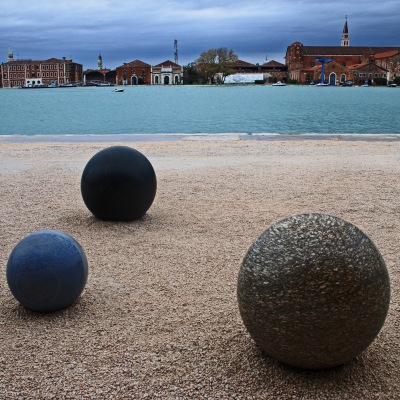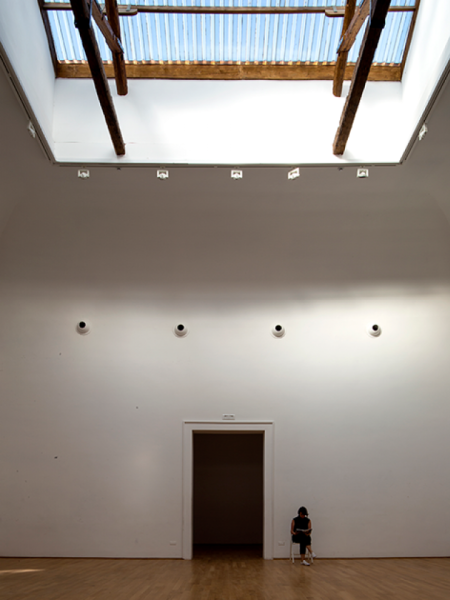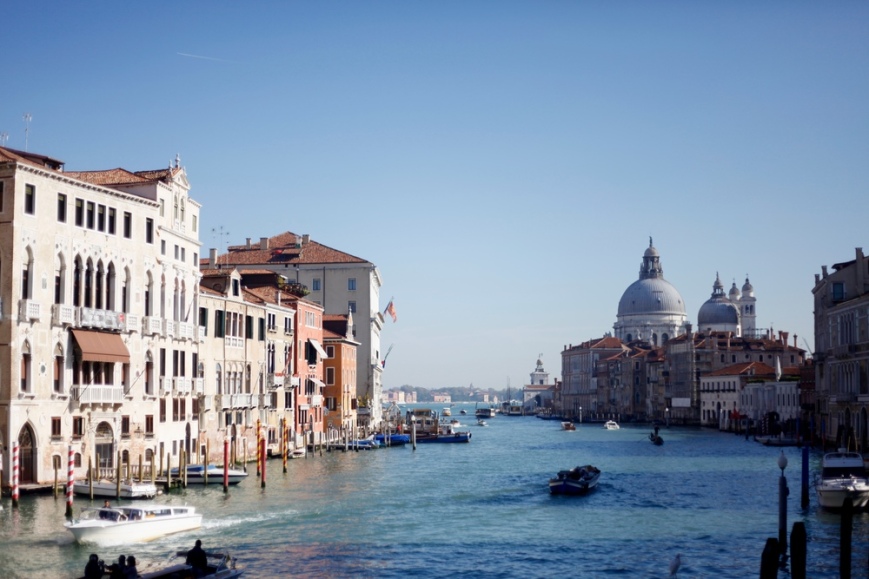Falmouth School of Art at Falmouth University is delighted for the third year to be a partner in the British Council’s Venice Fellowships. The programme is a unique opportunity for students, graduates and researchers to spend a month in Venice during the world’s most important art and architecture biennales. Working with others on invigilation and developing their own study and research, graduates receive an excellent grounding in engaging a professional, public and international audience with the British Pavilion, and develop teamwork, leadership and networking skills.
We will shortly be inviting our final year BA(Hons) Fine Art and BA(Hons) Drawing students to apply for a funded month-long Fellowship at the 2019 Art Biennale. Meanwhile, 2018 BA(Hons) Drawing graduate Hannah Berrisford has recently arrived at the Architecture Biennale for her month-long Fellowship, alongside others from disciplines including fine art, architecture, design, curation and anthropology. We look forward to hearing more about Hannah’s experience on her return, and asked her about applying and preparing for this opportunity…
“The Venice Fellowship is an opportunity to live in Venice for a month, working alongside the British Council, invigilating at “la biennale de venezia” and spending free time exploring the city, developing your practice within your own personal project.
The application asked questions about why you felt you were suitable for the event, and how your personal experiences would aid you in your time out there. I was also asked what sort of work I wanted to produce in my own time, following their theme of “freespace”. I was a student of the Drawing degree, and had chosen watercolour as a medium to specialise in. I wanted to continue developing my skills as a painter in Venice, so I interpreted freespace as an investigation of the relationships between the buildings of Venice and light, and how that would translate in my watercolour paintings.
Two of us on the Drawing degree were selected for an interview – there was no competitive atmosphere, only genuine “good luck”s. Because I am living in the South West of England, and the interviews were being hosted in London, the British Council were excellent and offered me a Skype interview. I had done quite a bit of research about past Biennales just in case they wanted to test if I had done any background research, but they themselves explained a brief history of the biennale, which was nice. It felt like they were wanting me to succeed in the interview and were very open. I responded to all their questions with similar answers to what I had included in my first application. I also mentioned how the themes I wanted to explore in Venice tied into my dissertation topic.
A mandatory induction involved two days in London, meeting other fellows and the groups we would be travelling with. I was placed in the final group to go to Venice – October 24th to November 26th. There are 10 of us in this group, and a significant age range and a diversity of artistic backgrounds. Even though we were all from an academic institute, everyone seemed to be studying a different branch of art varying from architecture to interpretive dance.
The weekend was centred around seminars that discussed the exhibition we would be invigilating. We were offered advice about finding accommodation and about interacting with the public. The groups got into teams and we met one another properly; it was during this time that people began sparking ideas about flat sharing/renting, as well as discussing individual research projects and when it might be appropriate to help one another. Another teammate and I have decided to flat share whilst we’re in Venice, staying close to another two teammates also flat sharing. This way, friendships will get a chance to grow, and as we’re all artists, we will have opportunities to bounce ideas off one another, helping our own projects develop.
Even though I’m entering a biennale centred on Architecture, drawing and painting buildings is actually one of my weakest skills. I threw myself in at the deep end, to force myself to address this problem. I didn’t want to arrive in Venice and begin the project with zero architectural experience so, over the last month, I have been engaged with the “Inktober” challenge. To merge this challenge and my own personal project, I decided to relate each day’s title to an architectural theme. Forcing myself to create works like this every day has helped me feel a little more prepared for the work I’ll be creating during my time in Venice”.
2017 Fine Art graduate Abbie Hunt wrote a piece for us about her experience spending a month as a Fellow at the 2017 Art Biennale.

















